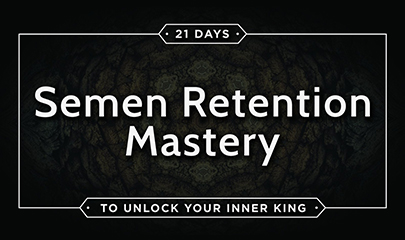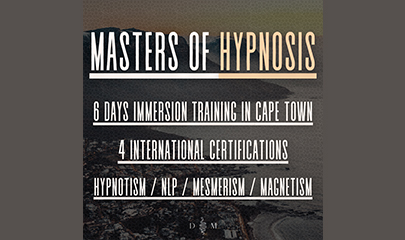The Secret Guide To Dark Psychology – 5 Books in 1 By Emory Green
$5,00
The Secret Guide to Dark Psychology: An Insightful Exploration – Digital Download!
Let’s embark on a captivating adventure to uncover remarkable insights that spark your curiosity and elevate your understanding
The Secret Guide To Dark Psychology – 5 Books in 1 By Emory Green
Overview

The Secret Guide to Dark Psychology: An Insightful Exploration
In a world woven with intricate social interactions, understanding human behavior often feels like piecing together a complex jigsaw puzzle. “The Secret Guide to Dark Psychology: 5 Books in 1” by Emory Green invites readers into this enigmatic realm, shedding light on the subtler, often shadowy tactics that can manipulate emotions and thoughts. The psychological concepts discussed within this guide provoke curiosity, as they touch on aspects of human nature that mainstream psychology often shies away from. This compilation not only seeks to educate but also empowers individuals, offering them tools to navigate and mitigate manipulative behaviors in both personal relationships and professional settings.
The book is structured as a singular volume that consolidates five themed books, focusing on an array of psychological techniques, including emotional blackmail, mind control, and gaslighting topics that are as compelling as they are contentious. Management of these often-controversial skills can lead to unanticipated power dynamics in social environments, prompting readers to confront their moral compass. By delving into these themes, Green challenges the notion that knowledge of dark psychology is solely beneficial for nefarious purposes, offering instead a lens to understand and safeguard oneself against deceitful manipulation.
Overview of Content
Thematic Breakdown
Here is a clear outline of the five primary areas discussed in the book:
- Emotional Blackmail
- Explores the mechanics of manipulating emotions to gain control over another person.
- Strategies for recognizing and resisting emotional exploitation.
- Dark Mind Control
- Analyzes techniques used to influence or control others’ thoughts and perceptions.
- Discusses the ethical ramifications of employing such techniques.
- Gaslighting Games
- Focuses on the art of psychological manipulation where the victim’s reality is distorted.
- Offers insight into recognizing signs of gaslighting in personal relationships.
- Psychological Manipulation
- A comprehensive look at various manipulation tactics and how they manifest in daily life.
- Provides a toolkit for defensively navigating such interactions.
- Self-Defense Strategies
- Concludes with practical advice on how to safeguard oneself from being manipulated.
- Includes real-life applications of the discussed techniques to fortify psychological resilience.
Critical Reception
Across various platforms, including Amazon, the book has garnered attention, maintaining an overall rating of 4.4 out of 5 stars. This positive reception speaks volumes of its appeal; however, the reviews reveal a polarized spectrum of perspectives.
Pros:
- Valuable Insights: Many readers express appreciation for the intuitive strategies provided throughout the text, finding that knowledge of dark psychology can be empowering.
- Real-World Applicability: Users note that the insights can be particularly useful in navigating both personal and professional environments, equipping them with the resources to counteract manipulative tactics.
Cons:
- Depth and Rigor: A portion of readers critiques the simplicity of the psychological concepts discussed, arguing that the book lacks academic depth that could enhance its credibility.
- Anecdotal Foundations: Some reviews mention concerns regarding the anecdotal nature of the evidence presented, suggesting that fictional scenarios dilute the practical weight of the author’s claims.
Emotional Blackmail: A Closer Look
Emotional blackmail emerges as a significant theme in this anthology, illustrating a form of manipulation where guilt, fear, and obligation are leveraged to influence an individual’s choices. This section unpacks how perpetrators often use phrases sprinkled with emotional weight to create a narrative that places undue pressure on victims much like a puppeteer pulling the strings of a marionette.
Readers are presented with various chilling examples of emotional blackmail, illustrating how manipulative behavior can creep into everyday interactions. One notable example might involve a friend who frequently reminds another of their sacrifices, implicitly suggesting that failure to comply with their wishes would equate to betrayal. Such tactics not only erode trust but also create a power imbalance that can foster resentment and anxiety.
Protective Measures
Harnessing the knowledge of these tactics is crucial. Readers are introduced to protective strategies that include:
- Setting Boundaries: Understanding one’s limits and communicating them effectively can deter potential blackmail.
- Cultivating Self-Awareness: By recognizing the triggers for manipulation, individuals can respond more mindfully, thus reducing susceptibility.
- Practice Assertiveness: Adopting an assertive stance in conversations can help in standing against emotionally charged manipulation attempts.
Dark Mind Control: Ethics at Play
The exploration of dark mind control encapsulates a portion of the book that addresses techniques to subtly influence another’s thoughts or behaviors. This analysis draws parallels with societal phenomena such as advertising and propaganda, which utilize similar mechanics for persuasion. Tales of manipulation, whether explicit or implied, serve as a stark reminder of the ethical implications tied to possessing knowledge of mind control.
Ethical Considerations
Engaging with the techniques discussed requires an ethical compass; using psychological manipulation for selfish gain raises significant moral questions. Green prompts readers to reflect on the consequences of wielding such power, akin to wielding a double-edged sword. Often, those who master manipulative skills find themselves entangled in morally ambiguous territory, highlighting the profound ethical responsibility that comes with understanding these tactics.
Practical Application
This section transitions into how readers might apply these skills in healthy ways, utilizing them to influence positively rather than for self-serving purposes. Persuasive techniques may be reimagined within the realms of negotiation or conflict resolution, painting a picture where knowledge of mind control can serve a greater good instead of leading to exploitation.
Gaslighting Games: Unraveling Reality
Gaslighting represents one of the more insidious forms of manipulation discussed within Green’s guide. The term amplifies its roots in psychological thriller narratives, capturing the imagination of readers as they delve into the chilling realities of altered perceptions.
Recognizing Gaslighting
Identifying the signs of gaslighting becomes an empowering journey for many readers. For instance, someone may gradually manipulate another’s memory or perception of events, culminating in intense self-doubt and confusion. Green lays out clear illustrations of gaslighting behavior, encouraging readers to recognize when their partners or colleagues engage in such tactics.
Strategies for Defense
Among the various strategies advocated, maintaining a personal journal or documentation of events may serve as a valuable tool for self-validation. By chronicling interactions, individuals can establish a clearer picture of reality. This practical strategy is critical, as it navigates the emotional chaos induced by a gaslighter and provides a lifeline back to one’s sense of self.
Conclusion: A Cautious Embrace of Dark Insights
“The Secret Guide to Dark Psychology” serves as both a cautionary tale and an empowering toolkit for understanding the darker corners of human behavior. While Emory Green articulates strategies that can be leveraged to defend against manipulation, it’s essential for readers to approach the material with a balanced perspective. The conversation about dark psychology is rich with ethical implications that require introspection and conscientious application.
As we traverse the landscapes of our personal and professional lives, an awareness of psychological manipulation equips us with the discernment to engage meaningfully and protectively. Thus, while this guide provides an engaging exploration of dark tactics, it also lays the foundation for a more empathetic understanding of human behavior, nurturing a society that values awareness over exploitation.
Frequently Asked Questions:
Innovation in Business Models: We use a group purchase approach that enables users to split expenses and get discounted access to well-liked courses. Despite worries regarding distribution strategies from content creators, this strategy helps people with low incomes.
Legal Aspects to Take into Account: Our operations’ legality entails several intricate considerations. There are no explicit resale restrictions mentioned at the time of purchase, even though we do not have the course developers’ express consent to redistribute their content. This uncertainty gives us the chance to offer reasonably priced instructional materials.
Quality Control: We make certain that every course resource we buy is the exact same as what the authors themselves provide. It’s crucial to realize, nevertheless, that we are not authorized suppliers. Therefore, the following are not included in our offerings: – Live coaching sessions or calls with the course author.
– Entry to groups or portals that are only available to authors.
– Participation in closed forums.
– Straightforward email assistance from the writer or their group.
Our goal is to lower the barrier to education by providing these courses on our own, without the official channels’ premium services. We value your comprehension of our distinct methodology.
Be the first to review “The Secret Guide To Dark Psychology – 5 Books in 1 By Emory Green” Cancel reply
You must be logged in to post a review.
Related products
Seduction & Love



















Reviews
There are no reviews yet.